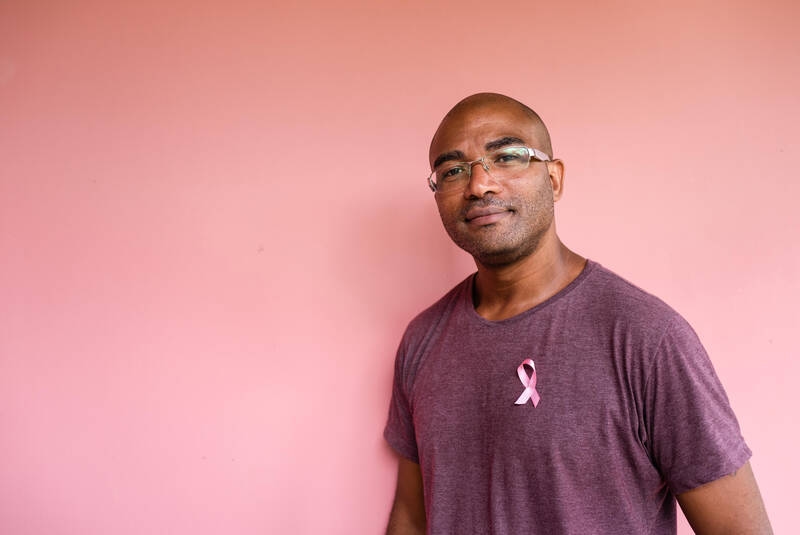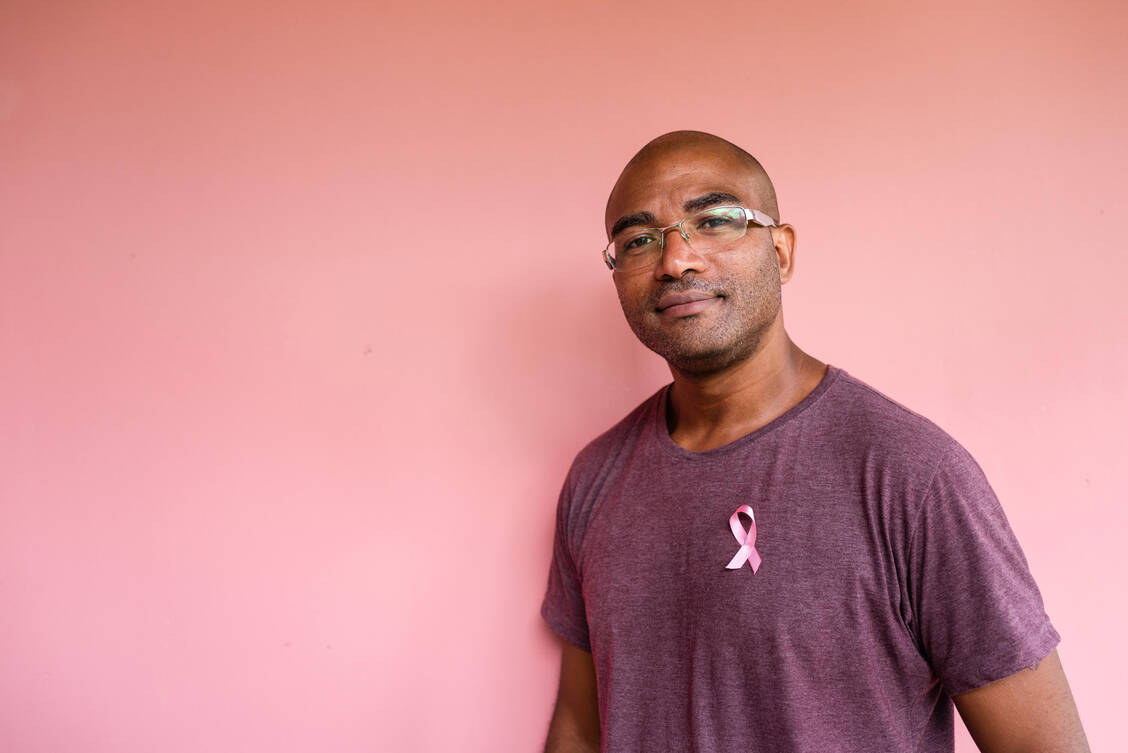BRCA1 and BRCA2: What breast cancer genes mean in men



Men can also develop breast cancer. Carriers of the BRCA1 and BRCA2 risk genes also have an increased risk of prostate and pancreatic cancer. / © Getty Images/Igor Alecsander
When it comes to breast cancer, most people automatically think of women. It's often overlooked that men can also develop this type of cancer. A large proportion of these patients carry mutations in the risk genes BRCA1 and BRCA2, which are even named after the disease (breast cancer).
The BRCA1 and BRCA2 genes, or the proteins they encode, are genetic repair agents. Together with the BRCA3 protein, they ensure that double-strand breaks in DNA are repaired. If these genes are mutated and no functional proteins are produced, the repair system cannot function properly. Errors then accumulate in the DNA, and the risk of certain types of cancer increases. Such loss-of-function mutations occur in one in 250 people in the population.
According to the German Cancer Information Service (KID), BRCA1 and BRCA2 are considered high-risk genes—they are the most frequently mutated genes in familial breast cancer. Approximately 70 percent of women with a BRCA1 or BRCA2 gene mutation will develop breast cancer by the age of 80. The risk of ovarian cancer is also increased: approximately 45 percent of mutation carriers develop this form of cancer. Furthermore, the mutations also increase the risk of pancreatic cancer. Specific guidelines have been developed for women with such a gene mutation to reduce the risk of cancer through close monitoring or prophylactic surgery.

People with mutations in the risk genes BRCA1 and BRCA2 have an increased risk of developing certain types of cancer at a young age. If such cases occur frequently in a family, men should also pay attention and consider genetic testing. / © Getty Images/Uwe Krejci
In families with familial breast cancer, men have the same risk of carrying a BRCA1/2 gene mutation as women. Their risks are particularly increased for prostate, pancreatic, and breast cancer. However, this is still not given enough attention even in professional circles, as affected Heinz N. confirmed in an interview with PZ: "My family doctor had never heard of this gene." Because there had been a striking frequency of early cancer deaths in his family and he was aware of the existence of the risk genes, he directly approached the Center for Familial Breast and Ovarian Cancer (FBREK) at Heidelberg University Medical Center with his suspicions. There, he was diagnosed with a BRCA2 mutation.
How exactly do the mutations affect men? According to a review by authors led by Dr. Heather Cheng of the University of Washington, published in 2024 in the journal "JAMA Oncology," mutations in the BRCA2 gene increase risks more than mutations in the BRCA1 gene. Male carriers of BRCA2 variants have a 4.7- to 8.6-fold increased risk of developing prostate cancer compared to non-carriers—the lifetime risk is 60 percent. A BRCA1 mutation increases the risk of prostate cancer up to 3.8-fold, and the lifetime risk is approximately 15 to 45 percent. There is also evidence that BRCA1/2 gene mutation carriers are more likely to develop more aggressive forms of prostate cancer.
The situation is similar with pancreatic cancer: Carriers of BRCA2 variants have a 3.0- to 7.8-fold increased risk of developing the disease compared to the general population (lifetime risk: 7 percent), and carriers of BRCA1 variants have a 1.9-fold increased risk (lifetime risk: 3 percent). The risk of pancreatic cancer increases significantly, especially after the age of 50, for carriers of BRCA1/2 mutations.
Breast cancer is rare in men overall – the lifetime incidence is 1 in 833 (approximately 0.12 percent). In male carriers of BRCA2 variants, the lifetime risk increases to 7 to 9 percent, and in BRCA1 carriers to up to 1.2 percent. The data are limited but indicate a younger age at diagnosis, higher tumor grade, an increased risk of axillary lymph node involvement, and a potentially reduced survival rate in male BRCA gene mutation carriers, the review states.
Furthermore, BRCA mutations may increase the risk of stomach cancer in patients with Helicobacter pylori colonization. A link with colon cancer and skin cancer has been discussed but not yet confirmed.

pharmazeutische-zeitung




